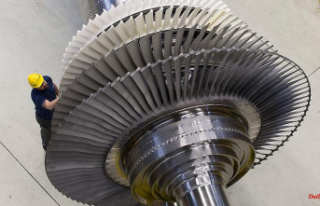The Russian central bank has once again eased its monetary policy significantly despite the ongoing sanctions against the country. Analysts had expected a reduction, but only to 9.0 percent.
With a surprisingly sharp interest rate cut, Russia's central bank is helping the economy groaning under Western sanctions. It capped the key interest rate by one and a half points to 8.0 percent. It was already the fourth step down this year. Experts surveyed had only expected a reduction to 9.0 percent. The central bank intends to examine in the further course of the year whether further easing steps are necessary. The environment for the domestic economy remains "challenging" and weighs heavily on the economy.
According to central bank forecasts, Russia's gross domestic product will shrink by four to six percent this year. The recession is expected to continue in 2023, albeit to a lesser extent. The invasion of Russian troops into Ukraine at the end of February and the subsequent sanctions imposed by the West are affecting Russia's economy.
At the same time, the central bank expects the strong upward pressure on prices to gradually subside: annual inflation of twelve to 15.00 percent is expected for this year, which will fall to five to seven percent in 2023. For 2024, the central bank is expected to reach its inflation target of four percent again. In the middle of the month, inflation in Russia was 15.5 percent.
At the beginning of the war of aggression against Ukraine, the central bank drastically raised its key interest rate to 20 percent in order to stop the Russian ruble from falling. Meanwhile, the ruble is even stronger than before the attack on Ukraine, also due to significant restrictions imposed by Moscow on capital movements. Although the inflation rate is high at a good 15 percent, it is tending to decline. The central bank therefore has leeway to lower its key interest rate and relieve the economy.












